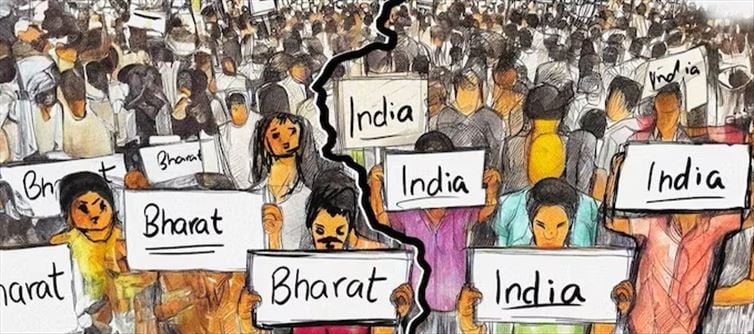The President of India's invitation to the G20 dinner has ignited a political debate over the country's formal name change from "India" to "Bharat." The invitation addresses Droupadi Murmu as "The President of Bharat" rather than "The President of india," which has opposition party leaders throughout the country asking concerns. What, then, does the supreme court and the Constitution have to say about this?
In accordance with Article 1 of the Constitution, "India, that is, Bharat, shall be a Union of States." It is important to stress that both "India" and "Bharat" are recognized as official names for the nation under Article 1 of the Constitution. The question that emerges is if the Centre intends to change the Constitution to remove "India" and replace it with the singular designation "Bharat"?
What supreme court Said
A PIL (public interest lawsuit) requesting that the name "India" be changed to "Bharat" was rejected by the supreme court in march 2016 notwithstanding the court's vehement opposition to the plea. The petitioner was informed by a bench that included Justice UU Lalit and former Chief Justice TS Thakur that such arguments would not be considered. "India or Bangladesh? Go ahead and call it Bharat if you want to. At the time, Justice Thakur had observed, "If someone wants to call it india, let them call it India.
A similar petition asking for the name
india to be changed to Bharat was rejected by the
supreme court once more in 2020, four years later. At that time, the
court recommended turning the petition into a submission and sending it to the Union
government for a suitable judgment. The Constitution uses both the designations "Bharat" and "India. The Constitution already refers to
india as "Bharat," as then-Indian Chief Justice SA Bobde had said.
How the Constitution be Amended
The
government would need to file a bill to alter Article 1 of the Constitution if it chose to simply use the term "Bharat" as the nation's official name. According to Article 368, the Constitution may be changed by either a simple majority vote or a special majority vote. A simple majority (i.e., more than 50%) of the total number of members present and voting on the amendment is required to change several articles of the Constitution, such as the admission of a new state or the distribution of seats for States and UTs in the Rajya Sabha. It would take a special majority (66%) of not less than two-thirds of the members present and voting in that
house to amend any other provision of the Constitution, including Article 1.





 click and follow Indiaherald WhatsApp channel
click and follow Indiaherald WhatsApp channel